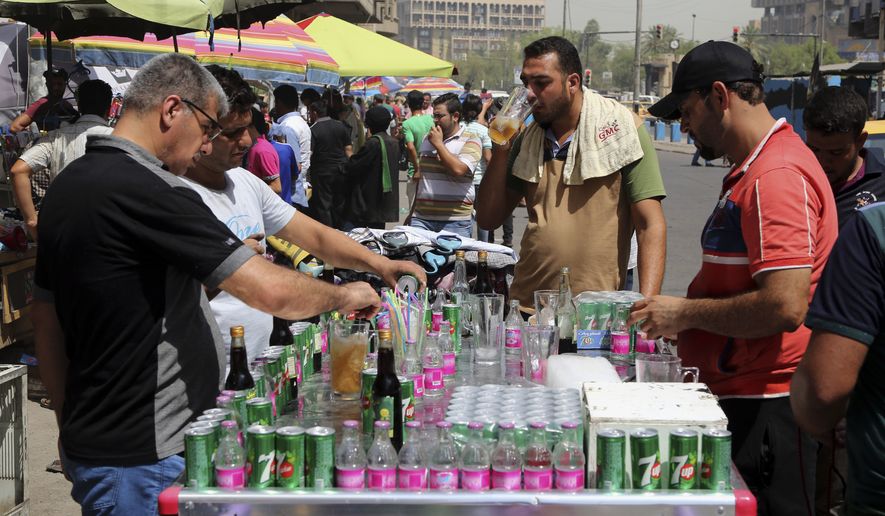Middle East experts say that as the Islamic State is defeated in Iraq and Syria, the fight for a stable political future in the region is just beginning.
“It’s very important not to look at Iraq solely through the prism of ISIS,” says Mina Al-Oraibi, a senior fellow at the Institute for State Effectiveness. “The success of this current war against ISIS depends on not looking at Iraq strictly through counterterrorism measures.”
The Islamic State is also known as ISIS and ISIL.
The U.S. is expected to pledge $2 billion to Iraq from governments around the world, but this money will need to be distributed to efforts other than to military in order to stabilize Iraq.
During a panel last week at the Woodrow Wilson International Center for Scholars, Ms. Al-Oraibi explained that in order for there to be a successful, post-ISIS Iraq there needs to also be humanitarian aid implemented in the region.
Liberated territories still need security forces that will be acceptable for locals, displaced populations need to return to their homes and towns have to be rebuilt. Most importantly, the Islamic State will need to be driven out of its stronghold in Mosul, Iraq.
For months, the Iraqi government has been attempting to recapture its second largest city from the Islamic State. The U.S. announced that they will also be sending 560 more troops to Iraq to assist in the offensive.
While Iraqi and U.S. officials have not announced a date for an offensive, Prime Minister Haider Al-Abadi wants to enter Mosul by October. The city is “strategic” and there will be a focus on the military push to recapture it, said Ms. Al-Oraibi.
However, the key for military success will be the politics that play out and then the economics.
“Iraq still needs continuous international aid,” the media office of Salim Al-Jabouri, speaker of the Iraqi Council of Representatives, announced in a statement.
Mr. Al-Jabouri expressed his gratitude for the aid provided to Iraq by the international community and stressed the importance of using these funds for reconstruction.
“It’s important that the citizens of Iraq are taken care of by their government,” said Ms. Al-Oraibi. “Building trust and organizing communities will be the biggest challenge but the most important component for long-term success.”
The creation of jobs in liberated areas needs to be a focus along with providing stable, trustworthy security forces. The government will have to show that the politics are working and Baghdad will have to rebuild a relationship with citizens, especially those who were forced to leave their homes because of ISIS.
Kurdistan also will need to be resolved issues in order to remain a “beacon of hope in an otherwise turmoil and volatile regio,” said Bilal Wahab, assistant professor at the American University of Iraq.
Mr. Wahab said the Kurds “stood their ground” during Islamic State invasions and that the Kurdish fighting force Peshmerga will assist in liberating Iraq. Though, reforms — specifically economic reforms — will need to occur or else “fissures” will emerge again. The Kurds govern a semi-autonomous area in oil-rich northern Iraq based in the city of Erbil.
There will need to be a reduction of Erbil’s control on the economy as well as clear division and sharing of oil revenues, said Mr. Wahab. If not, he warned that conditions will allow for the emergence of a new terrorists group — just how the Islamic State emerged after the defeat of al Qaeda.
At their strongest, the Islamic State captured 30 percent to 40 percent of Iraqi territory. While it has reduced to less than 10 percent now, radical Islamists continue to inflict damage throughout the region.
Most recently, the Islamic State has claimed responsibility for attacks in Orlando, Florida; Nice, France; and central Baghdad.
Mosul, Iraq’s second-largest city, will be a major test for the ill-equipped Iraqi Ground Forces backed by the Kurdish Peshmerga and small groups of Western special forces. If the attack is successful, the United Nations has predicted Mosul will require the largest humanitarian relief operation in the world this year.
• Erica Brosnan can be reached at ebrosnan@washingtontimes.com.




Please read our comment policy before commenting.